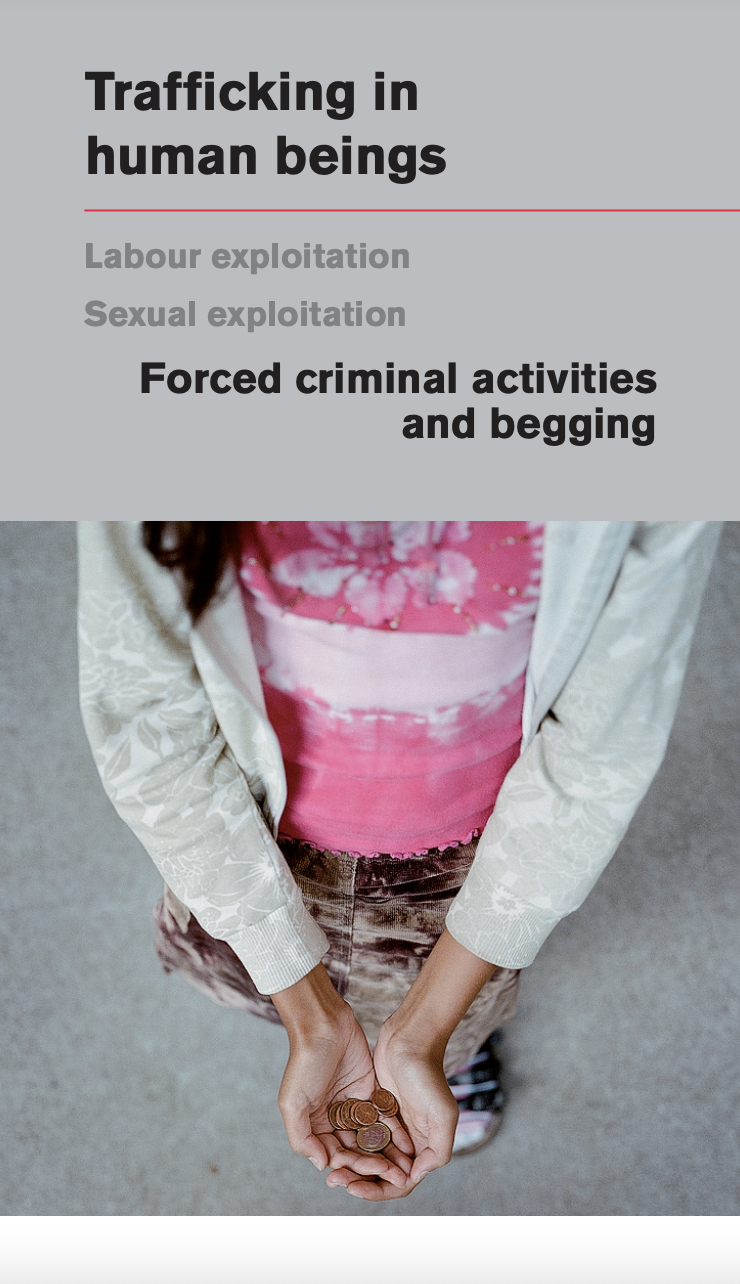Trafficking in human beings is defined as a situation whereby a person’s predicament is used to trap them in an exploitative situation. This can take various forms and occurs in different areas:
• Exploitative employment relationships
• Sexual exploitation
• Exploitation in marriage
• Forced begging
• Forced criminal activities
• Forced removal of organs
Trafficking in human beings is not only a severe offence but also constitutes a serious human rights violation and a breach to the dignity and the integrity of the human being.
For many years, specialised counselling centres working with trafficked persons have addressed trafficking for sexual exploitation alongside cases of trafficking in human beings for labour exploitation or exploitative employment relationships. In recent years, we have seen an increasing number of cases in which persons are exploited by being coerced into begging or criminal activities.
This brochure is part of a range of information brochures. Each one aims to take a closer look at a form of exploitation and to provide information about the counselling options and support structures available to trafficked persons in Germany. In particular they will present the services and work carried out by KOK’s members.
This brochure focuses on the phenomenon of forced criminal activities and forced begging.

